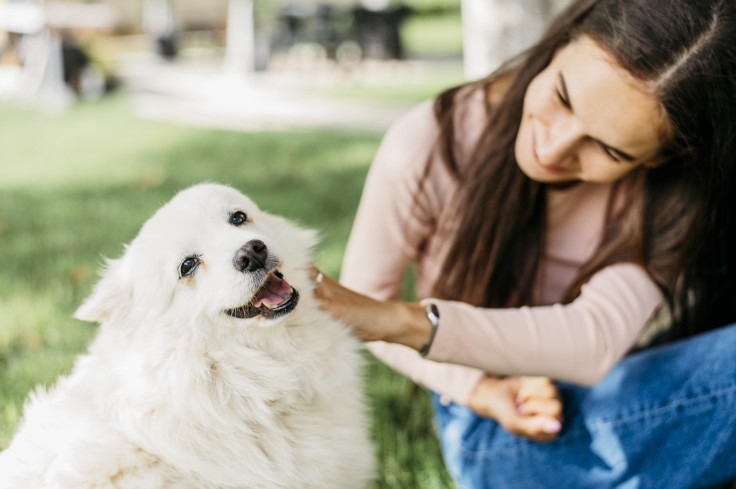Interacting with Dogs Boosts Brain Waves and Reduces Stress
Latest science shows EEG scans reveal specific changes in brain activity while petting, walking, and playing with a dog. According to a study published March 2024 in the open-access journal PLOS ONE, spending quality time with dogs reduces stress and increases the power of brain waves associated with relaxation and concentration.
dog. According to a study published March 2024 in the open-access journal PLOS ONE, spending quality time with dogs reduces stress and increases the power of brain waves associated with relaxation and concentration.
Animal-assisted interventions, such as canine therapy, are widely used in hospitals, schools, workplaces and beyond to help reduce anxiety, relieve stress, and foster feelings of trust. While this is often cited as a successful and impactful interaction, it doesn’t differentiate between types of interactions, such as grooming, feeding, or playing with an animal.
Getting Specifics
To better understand how each specific impacts a person’s health and well-being, researchers recruited a small sample of 30 adult participants to each perform eight different activities with a well-trained dog, such as playing with a hand-held toy, giving her treats, and taking pictures with her. Participants wore electroencephalography (EEG) electrodes to record electrical activity from the brain while they interacted with the dog, and they recorded their subjective emotional state immediately following each activity.
Evaluating the strength of alpha-band oscillations in the brain was an indication of well-being and reflecting a state of relaxed wakefulness. When grooming, gently massaging, or playing with the dog, relative beta-band oscillation strength increased, a boost typically linked to heightened concentration. Participants also reported feeling significantly less fatigued, depressed, and stressed after all dog-related activities.
The authors state that the unique relationships between specific activities and their physiological effects could serve as a reference for programming targeted animal-assisted interventions in the future and add that “this study provides valuable information for elucidating the therapeutic effects and underlying mechanisms of animal-assisted interventions.” More research needs to be done but this study is a great beginning and very satisfying to all of the participitants.
